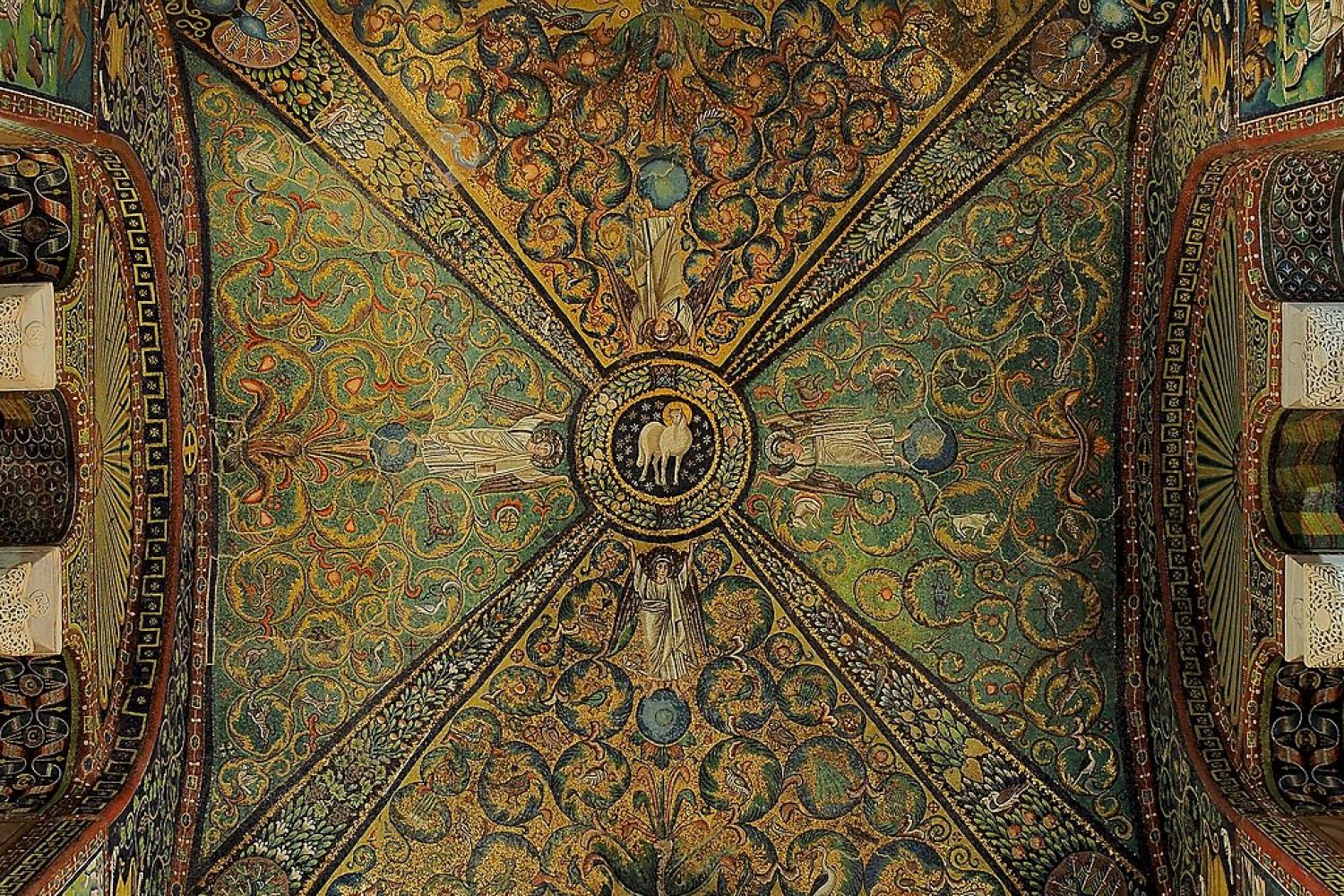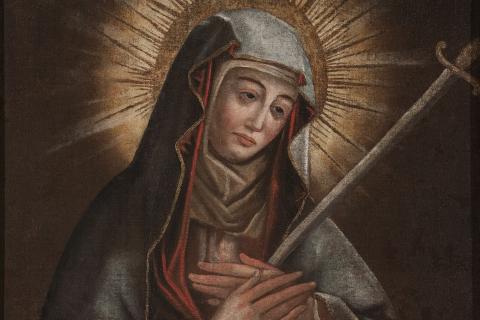
Born to nobility in Recanati near the Adriatic, the Romantic poet Giacomo Leopardi (1798-1837) abandoned Christianity in his youth after exposure to Enlightenment thought. He immersed himself in Latin, Greek, and Hebrew, achieving fluency in the first two languages and completing a translation of the Iliad at eleven years old. He developed a reputation as a brilliant man of letters. Like all geniuses, Leopardi was a sensitive man. Like Michelangelo and Dante he could be overwhelmed by beauty. In his twenties he came to realize that the beauty he saw in women somehow pointed beyond the individual, to someone transcendent. Beatrice did something similar to Dante, but Dante saw her beauty fulfilled in Jesus Christ. And yet, in Leopardi’s “Alla Sua Donna,” we see remarkable hints of Christianity that, ultimately, do not seem to have led him to the Incarnate Lord.
Alla Sua Donna (To his Lady) (Jonathan Galassi translation, altered)
except when your celestial image
stirs my heart in sleep, or in the fields
where light and nature’s laughter
shine more lovely;
was it maybe you who blessed the innocent
age they call golden,
and do you now, blithe spirit,
soar among men? Or does the miser, fate,
who hides you from us keep you for the future?
remains for me now,
except when, naked and alone,
my soul will go down a new street
to an unfamiliar home. Already, at the dawn
of my dark, uncertain day,
I imagined you a fellow traveler
on this parched ground. But no thing on earth
is equal to you; and if there were someone
who had a face like yours, though she resembled
you in word and deed, she’d be less lovely.
fate assigned to human life,
if there was anyone on earth
who truly loved you as my thought portrays you.
This life for him would be a joy.
And I see clearly how your love
Would still inspire me to seek praise and virtue,
The way I used to in my early years.
Though heaven gave no comfort for our suffering,
Still mortal life with you would be
Like what in heaven becomes divinity.
The weary farmer singing
And I sit and mourn
My youth’s illusions fleeing;
And on the hills where I turn back
And lament my lost desires,
My life’s lost hope, I think of you
And start to shake. In this sad age
And unhealthy atmosphere, I try
To keep your noble look in mind;
Without the real thing, I enjoy the image.
eternal idea that eternal wisdom
disdains to see arrayed in sensible form
to know the pains of mortal life
in transitory dress;
or if in the supernal spheres another earth
from among unnumbered worlds receives you,
and a near star lovelier than the Sun
warms you and you breathe benigner ether,
from here, where years are both ill-starred and brief,
accept this hymn from your unnoticed love.
If Beauty Itself would share our life, we would be transformed. Leopardi would return to that golden age of communion with the Word. The consequences of such an Incarnation would be threefold. First, “Life for him would be a joy.” Second, we would change our actions and seek virtue. Third, we would become partakers of the divine life: “still mortal life with you would be/ Like what in heaven becomes divinity.” (see II Peter 1.4). But in the absence of this beauty, stanza four, Leopardi is brought to a kind of melancholy. Perhaps Leopardi would be classified as depressed today but in this poem we clearly see that his melancholy comes from his imaginative vision rather than the his vision stemming from his melancholy.
In the last stanza we see one of the clearest unfulfilled desires for the Incarnation, for it is the one and only form (idea in Italian, taken from Plato’s “Form of the Good”, ἰδέα, pronounced in the same way as the Italian idea) that “eternal wisdom/ disdains” to share our mortal life. For Christians, the Form of Beauty and the eternal Wisdom is the Word who does precisely what Leopardi desires so deeply.
What can we learn from this poem? First, that the desire for God to share our life is universal and those who pay attention, as Leopardi did, acknowledge this desire in one way or another. It is our duty to share with others that their desire for beauty and love can be attained, and in fact is freely offered them, here and now. Not all see this or are ready for it at all times. Few live lives of Leopardi’s depth and richness. It may in part be our task to bring to our neighbors’ attention to the need for this truth and to their own longing for it.
Luigi Giussani, founder of Communion and Liberation, memorized this poem as a high school student and for many years recited is as a thanksgiving after receiving communion. With Giussani we can learn from Leopardi’s heart our own desire for communion with the Incarnate Beauty, Jesus Christ.
Further Reading
- Hans Urs von Balthasar The Glory of the Lord, volume 1.
- Luigi Giussani, editor, Giacomo Leopardi: Cara beltà. Poesie. Introduzione di Luigi Giussani.- Giussani’s introduction to this Italian anthology of Leopardi’s poem influenced this article.
- Luigi Giussani, The Religious Sense.
- John Henry Newman, Oxford University Sermons.
- John Henry Newman, The Grammar of Assent.
- Plato, The Republic


